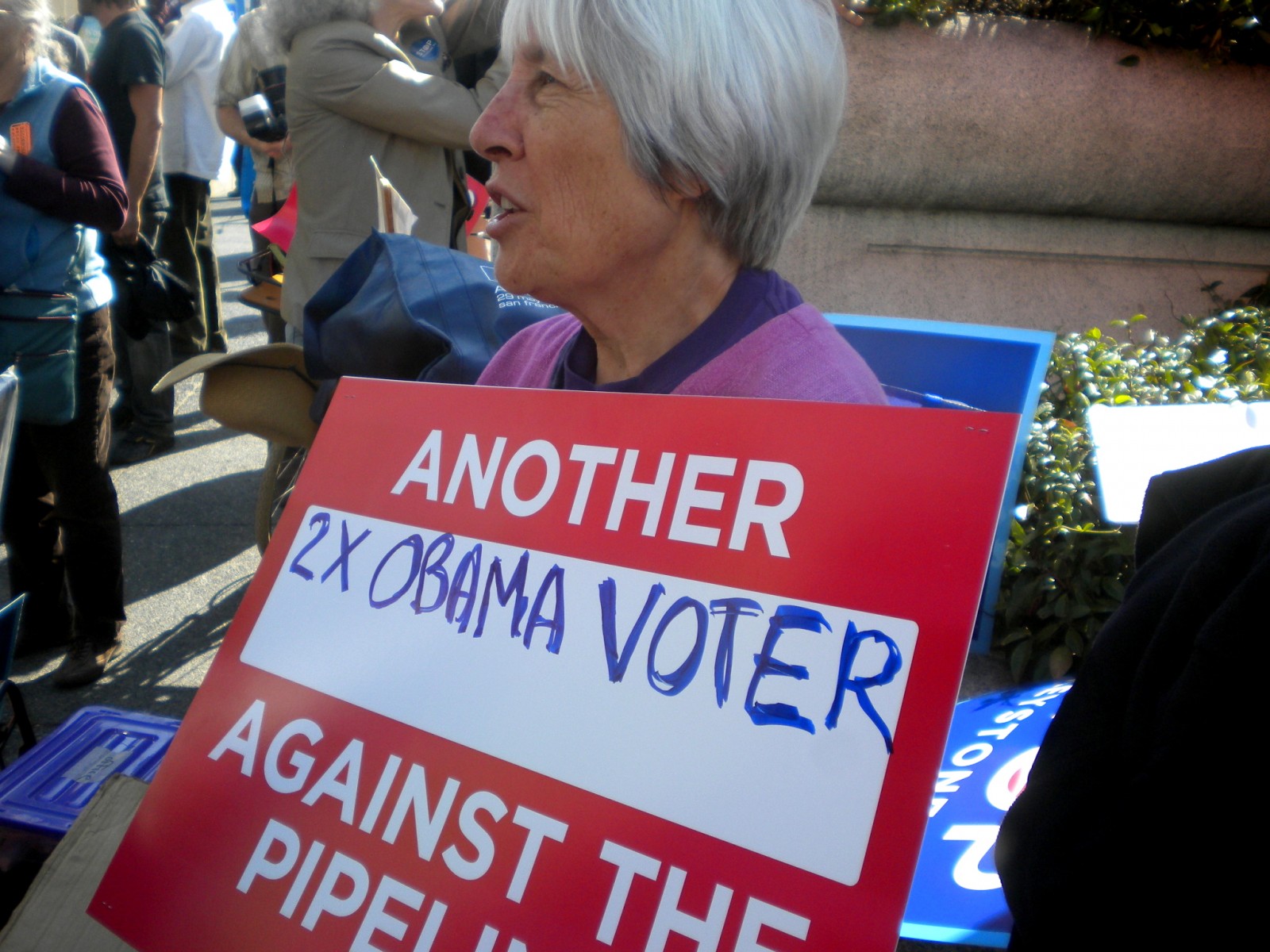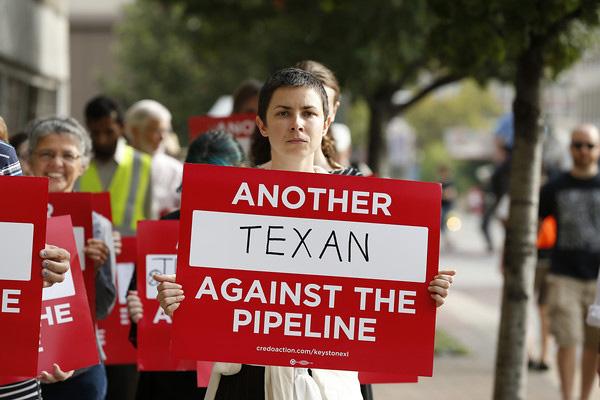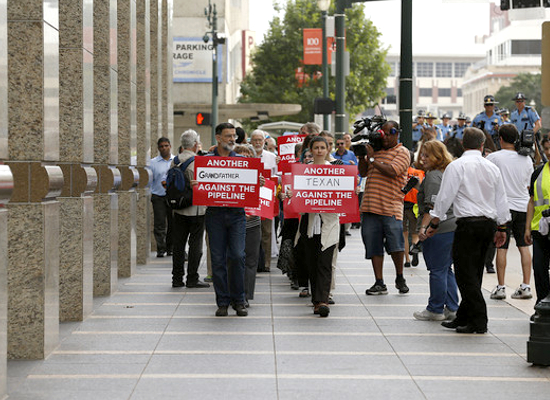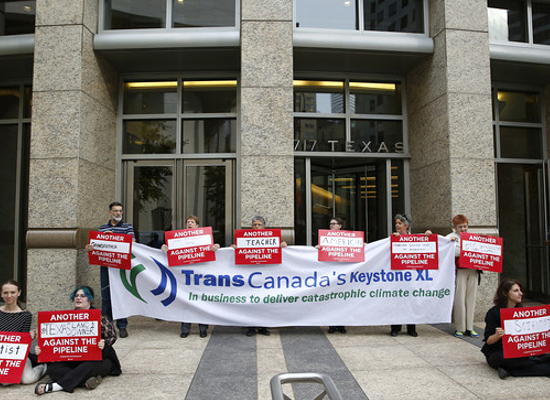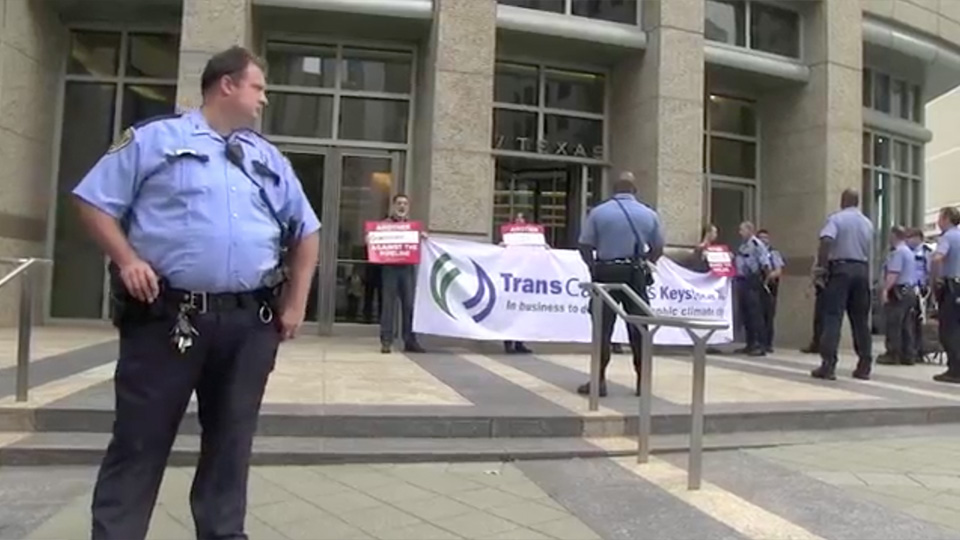If you’re concerned with air quality, low fuel prices, preserving natural resources, catastrophic climate change, encouraging renewable energy development, or the abuse of corporate power, then you may well be wondering why President Obama is poised to approve the Keystone XL pipeline. If you are not concerned, you should be. Let’s itemize a few reasons to be alarmed every time you hear your government revisiting the Keystone XL Pipeline proposal:
• Spokesman Terry Cunha has admitted that the Midwest is oversupplied with Canadian oil, which has kept crude prices low. An increase of $3/barrel on Canadian heavy crude oil is expected in the Midwest once the pipeline is approved, resulting in higher fuel prices. TransCanada will boost its earnings by 1 billion dollars annually with the completion of Keystone XL.
• Using the proposed detection system, pipeline spills will not be caught until they reach an alarming rate of 12,000 barrels/day. Leaks happen, as evidenced by a massive toxic waste spill from an oil project site in Alberta covered more than 1,000 acres in early June.
• Alberta’s Energy Resources Conservation Board found TransCanada failed to clean up the “vast and expanding” toxic waste ponds leftover from tar sands mining, which kill about 7,000 ducks and geese every year. Keystone’s waste ponds would be on US soil.
• Oil from tar sands is 15 to 20 percent dirtier than conventional petroleum, and the process of extracting and refining it is more difficult and resource-intensive.
• British Columbia recently rejected a proposed tar sand pipeline through their own pristine territory by citing safety concerns.
In addition to the negative effects which accompany the Keystone XL proposal, there have been many positive developments in other fields which raise even more questions as to why anyone would support the project. Solar panel prices are down 80% since 2008. Wind turbine prices are down 29% since 2008. Electric vehicle batteries have dropped 37% in the last 2 years. Electric vehicles, without subsidies, are now expected to be cost competitive to fuel vehicles by 2018. The US has been a leader in renewable energy and the TransCanada pipeline would represent a giant step backwards.
Since 2005, Americans are driving less each year and are driving more fuel-efficient vehicles. Even in the absence of a comprehensive energy policy, we’re becoming less dependent on fossil fuels. If we weigh all all the risks, and account for our promising renewable energy sector and lower demand on fossil fuels, we are led to to an obvious conclusion: the 35 permanent jobs that would be created by approving the Keystone XL line are not near enough justification for our support.
There are numerous significant reasons not to go forward with this project, so why it is still being considered? Large transnational corporations have far too much influence in our political system and use their clout to induce elected officials to ignore the better interests of their constituents and the communities in which they live.
It’s not too late to add your voice to the growing chorus of groups who are actively working to ensure our country continues to pursue wise energy policies. But one of the most significant actions you can take to stop abuses of corporate power is to join the Move To Amend Coalition, which is working to abolish the doctrine created by the Supreme Court that artificial entities, like corporations, are people entitled to inherent rights under our Constitution, and that money is protected political speech.
Until we pass the We the People Amendment, corporations will continue to run roughshod over our political system, our communities, and our environment.
Meanwhile, on Monday, 13 people were arrested protesting the Keystone XL pipeline at TransCanada's Houston headquarters, as reported by Rainforest Action Network on EcoWatch:
Thirteen activists were arrested while staging a peaceful sit-in at the Houston TransCanada Headquarters in opposition to the Keystone XL pipeline. Dozens of Texans rallied nearby in support of the activists who risked arrest at Monday’s protest.
Activists rallied across the street in Market Square Park with signs before marching to the TransCanada office and staging a sit-in in protest of the foreign oil company’s efforts to build a giant pipeline through American soil so it can export the tar sands oil to China.
This is the third civil disobedience action organized by CREDO, Rainforest Action Network and the Other 98% to maintain pressure on President Obama and the State Department to reject Keystone XL once and for all.
“Plain and simple, TransCanada’s Keystone XL pipeline is not in our country’s interest,” said Amanda Starbuck, the energy and finance program director for Rainforest Action Network. “If President Obama approves the dangerous Keystone XL pipeline he will be sending the message that the financial interests of companies like TransCanada take priority over the health and safety of the American people. I’m pretty sure he doesn’t want to do that.”
“TransCanada’s first crude pipeline leaked 100 times more than the company expected within the first year of its operation,” said Susan Baerst, a former financial analyst for a pipeline company in Houston, who participated in the protest. “The company’s business model depends on a ‘least cost’ solution to spills that shifts the burden for clean up onto American taxpayers, and will ruin our environment in the process.”
“We are here today to send a message that we won’t stop protesting the dangerous Keystone XL pipeline until President Obama rejects it,” said Becky Bond, political director of CREDO. “This foreign oil company only wants to build the Keystone XL pipeline through American soil so it can export some of the dirtiest oil on the planet to China.”
“The health of our climate, and landowners from Texas on up to Nebraska, will pay the price for TransCanada’s greed if President Obama doesn’t act swiftly and reject Keystone XL,” said Bond.
Canadian Prime Minister Stephen Harper recently made a desperate attempt to convince President Obama to approve the pipeline, offering “joint action to reduce greenhouse gas emissions” if that is what is required to win the project’s approval.
The State Department is currently investigating the contractor that drafted the latest controversial environmental analysis of the pipeline for failing to disclose ties with TransCanada, and with the powerful oil lobby, the American Petroleum Institute.
More than 75,000 people have signed a Pledge of Resistance to risk arrest in peaceful, dignified civil disobedience if President Obama’s administration issues a draft National Interest Determination recommending approval of the Keystone XL pipeline.
Sabina Khan, a Pakistan native has a master’s degree in conflict resolution from the Monterey Institute of International Studies in California. She is a regular Op-ed contributor to Express Tribune newspaper in Pakistan, an affiliate of the International Herald Tribune.
3 WAYS TO SHOW YOUR SUPPORT
- Log in to post comments


